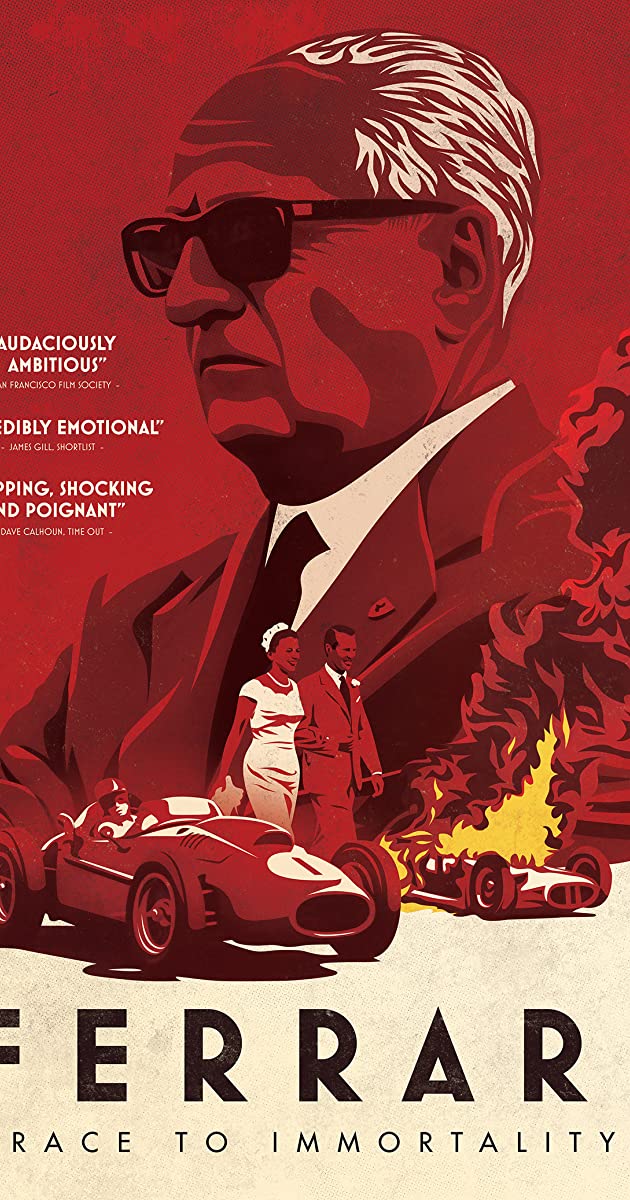

Enzo Ferrari was a racing driver who founded the Italian sports car manufacturer bearing his name. Ferrari cars are generally seen as a symbol of luxury and wealth. He was born Enzo Anselmo Ferrari on February 18, 1898, in Modena, Italy. His father, Alfredo Ferrari, had a metal business. At the age of 10 Enzo saw several car races in the 1908 Circuit di Bologna, and he decided to become a race car driver. He received little formal education, and in his youth during WWI he was shoeing mules during his assignment to the Alpine Artillery division of the Italian Army. Both his father and brother died in 1916 as a result of Italian flu outbreak and the family business collapsed. Ferrari himself became severely ill during the 1918 flu epidemic which he barely survived, and was discharged from Italian service. He applied for a job at Fiat, was turned down and eventually got a job as a test driver at a small car-maker named CMN. In a 1919 race at the Targa Florio he finished ninth. With the help of his friend Ugo Sivocci he got a job with Alfa-Romeo in 1920, and had success as a racing driver. In 1923, young Ferrari won the Circuit of Sivocci at Ravenna. There, he acquired the legendary ace pilot Francesco Baracca's WWI pilot badge, a prancing horse on a yellow shield. This icon would have to wait until 1932 to be displayed on a racing car. Enzo Ferrari's greatest victory was at the 1924 Coppa Acerbo at Pescara, with an Alfa Romeo R.L. That and many more successful races made Ferrari a recognized name. In 1922 Benito Mussolini seized power in Italy and established a totalitarian fascist regime that sponsored an aggressive nationalism as a mimic of the Roman Empire. The name of a winning driver, like Ferrari, was used as one of many propaganda tools. He was awarded the Cavaliere dell'ordine della Corona d' Italia and was promoted to the rank of Commendatore. In Mussolini's eyes Ferrari had won all his races for Italy. In reality it was the only job Ferrari could do. In 1926, overburdened and stressed, Ferrari experienced an emotional breakdown and stopped racing. He turned down a few offers, including one for a big race in Mussolini's presence. He switched to fixing cars for Alfa, but his racing career was mostly over, though he did race in 1927 and a few times thereafter, but with less success than he had previously. In 1929 he started Scuderia Ferrari, a team of racing drivers and technical assistants working for Alfa. Ferrari soon made similar deals with Bosch, Pirelli and Shell. His team caused a sensation after eight victories in 22 competitions. With up to 50 full- and part-time drivers, it was the largest team ever gathered by one man. Ferrari's talent as a team organizer and director superseded that of a racer. He completely retired from racing in 1932, when his first son Dino was born. In 1937 he quit Alfa-Romeo under agreement that he could not race or design anything under his name for four years. During World War II, Ferrari's company was forced to undertake war production for Mussolini's fascist government, thus supplying auto parts for the Italian military. Allied bombing forced him to relocate the factory from Modena to Maranello. After WWII Ferrari was able to shed his fascist-tainted reputation. He concentrated all efforts on the design of the car that would carry his name. In 1946 Ferrari Tipo125, a 1.5-liter car, was built in collaboration with his old friend G. Colombo, and it was entered in the 1947 Grand Prix of Monaco. Ferrari participated in the first F-1 World Championship in 1950. He won the 1951 F-1 British Grand Prix and dominated the World Championships in the early 50s. He also had a business victory when Lancia withdrew from racing and its parent company, Fiat, turned over all Lancia's cars to Ferrari. His F-1 successes in 1956, 1958, 1961 and 1964 were paralleled by even more victories at the Mille Miglia and Le Mans. His total of 14 victories at Le Mans included six in a row in 1960-1965. The postwar economic boom ended for Ferrari in 1956, when his son Dino died of muscular dystrophy, causing the end of Enzo's marriage. Ferrari was depressed and, having not many friends, moved into a small apartment at his factory. There he lived and worked 24/7 without a vacation for many years. He wore sunglasses as a ritual to honor his son. His management skills and attention to details helped the business through a decline in the 60s. In 1963 he rejected an $18-million offer from Ford to buy his company. In 1965 he allowed Fiat to have a small stake the company; their share increased to 50% in 1969 and and to 90% in 1988. Ferrari remained managing director until 1971, and was influential until his death at the age of 90 on August 14, 1988, in Modena, Italy. The Scuderia Ferrari team won several F-1 championships with driver Michael Schumacher between 1999-2004. The name of the company's founder was given to the 2003-2004 production model. It was built with F-1 technology: carbon-fiber body, F-1 sequential-shift transmission, and carbon-ceramic brake discs. The Enzo Ferrari is the first model to have the new V12 power plant, making it the fastest street-legal race car Ferrari has ever produced. It shares the base platform with its twin, the Maserati MC12, which is both a street car and a GT racing car. Only 399 Enzo Ferraris were built and sold to subscribers. - IMDb Mini Biography By: Steve Shelokhonov